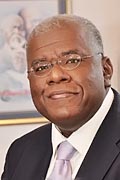Latest News Archive
Please select Category, Year, and then Month to display items
02 January 2025
|
Story Gerda-Marie van Rooyen
|
Photo Supplied
 Leading the research in South Africa is Prof Linus Franke from the Department of Soil, Crop and Climate Sciences.
Leading the research in South Africa is Prof Linus Franke from the Department of Soil, Crop and Climate Sciences.
Scientists are actively pursuing the successful breeding of diploid hybrid potatoes from inbred lines. This is expected to revolutionise potato breeding as it holds the key to rapid genetic progress. It will introduce new varieties for commercialisation through seed. Currently, existing potato variants have a gene that renders self-pollinated seeds infertile.
Prof Linus Franke, an academic in the Department of Soil, Crop and Climate Sciences at the UFS, is leading the research in South Africa. “This technology allows the production of genetically uniform potato seed that is easy to transport and largely disease-free.” He says this differs from conventional breeding whereby only vegetative propagation is possible due to tetraploid varieties in potatoes. It also risks carrying pests and diseases from one generation to the next – leading to the accumulation of pests and diseases with each round of multiplication.
Seed innovation
Prof Franke explains that Solynta BV, a seed company based in the Netherlands that produces potato varieties that can be grown from seed, has included South Africa in their research efforts because it is one of Africa’s largest producers and exporters. Through his academic relationship with Wageningen University and Research, a Dutch institution renowned for its agricultural endeavours and food production, the UFS became involved in researching hybrid potatoes grown from seed.
Diploid seeds containing two sets of chromosomes allow easier gene manipulation to increase predictability and speedier genetic progress. The breeding approach enables the incorporation of tolerance to pests, diseases, abiotic stresses (cold, heat, drought) and other desired genetic traits.
Although Prof Franke is optimistic about this research, he is not blind to disadvantages. “Potato seeds are tiny and have little energy reserves, making it harder to grow potatoes from seed than from tubers.” He says potatoes from seed will take longer to cultivate than tubers, as farmers need to grow plantlets from seeds first, adding six weeks to the growing period. “It is possible that commercial farmers can grow potatoes directly from seed. Alternatively, perhaps more likely, specialised growers will produce tubers of potatoes from seed; these tubers are then sold as seed tubers to other potato farmers, who then continue their normal practices of producing potatoes for the market from tubers.”
Financial benefits
Prof Franke says farmers have reason to get excited. “Seed potatoes will reduce input costs, as varieties with enhanced tolerance to pests and diseases require less pesticides. Planting one hectare of potatoes requires three to four tonnes of potato tubers, but only one 25 g packet of potato seeds.” Since potatoes are a more valuable commodity than maize, this technology might also increase farmers’ income potential.
Prof. Jonathan Jansen honoured for transforming education
2010-04-16
 |
| Prof. Jonathan Jansen |
|
The Rector and Vice-Chancellor of the University of the Free State (UFS), Prof. Jonathan Jansen, will be awarded an honorary doctorate by the Cleveland State University in the United State of America.
“The Board of Trustees and the Faculty of Cleveland State University have voted to award you this degree in recognition of your outstanding contribution towards the transformation of education, politics and diversity for the citizens and students of South Africa and the world,” Ronald Berkman, President of the Cleveland State University, stated in the letter he wrote to Prof. Jansen.
The degree, an Honorary Doctor of Higher Education Administration, will be conferred on him in Cleveland on 15 May 2010.
Prof. Jansen has also received recognition of another form. His book, Knowledge in the Blood: Confronting Race and the Apartheid Past, was among the six books that were selected for outstanding recognition awards by the American Educational Research Association (AERA), in the category: “Decolonizing the curriculum conversation”.
The book was also listed among the best 31 books of 2009 by the Library Journal - the oldest and most respected publication covering the library field.
The outstanding recognition awards recognize books that make a vital contribution to Curriculum Studies.
The six books were among 30 that were submitted for the Outstanding Book Award won by Peter Taubman’s Teaching by Numbers.
Media Release
Issued by: Mangaliso Radebe
Assistant Director: Media Liaison
Tel: 051 401 2828
Cell: 078 460 3320
E-mail: radebemt@ufs.ac.za
16 April 2010
|